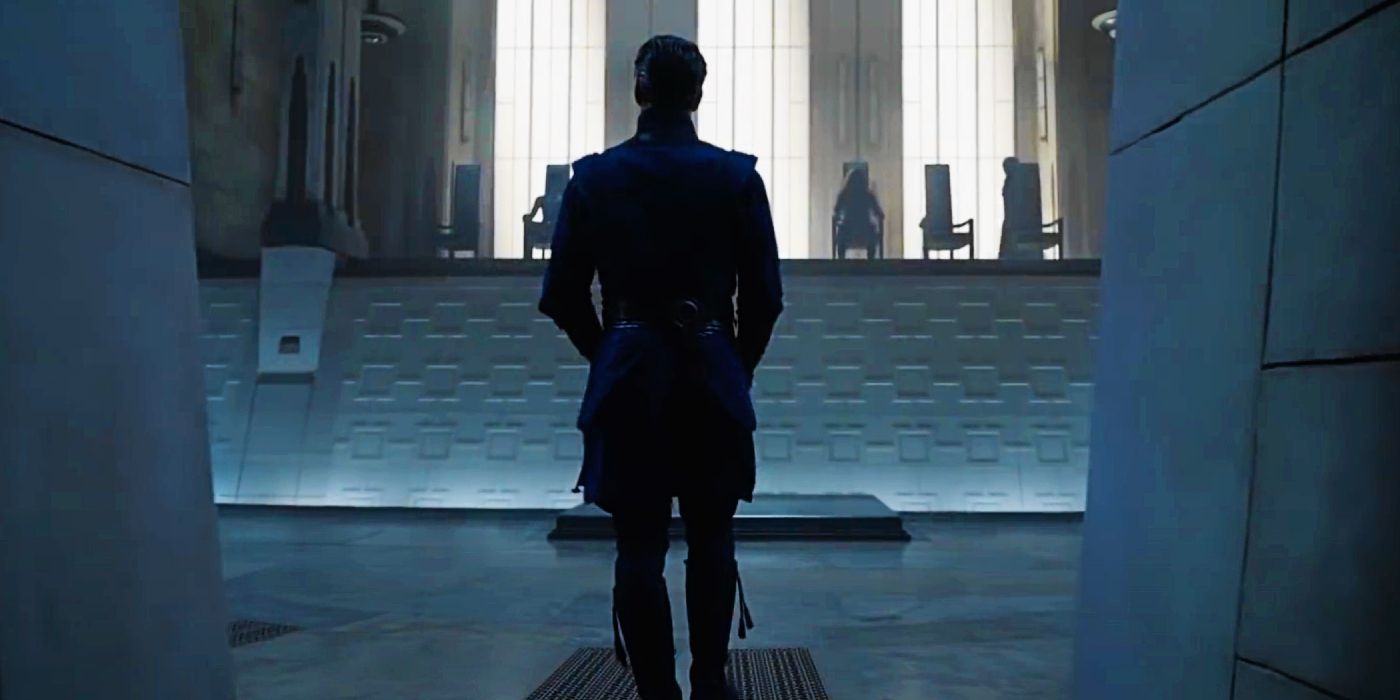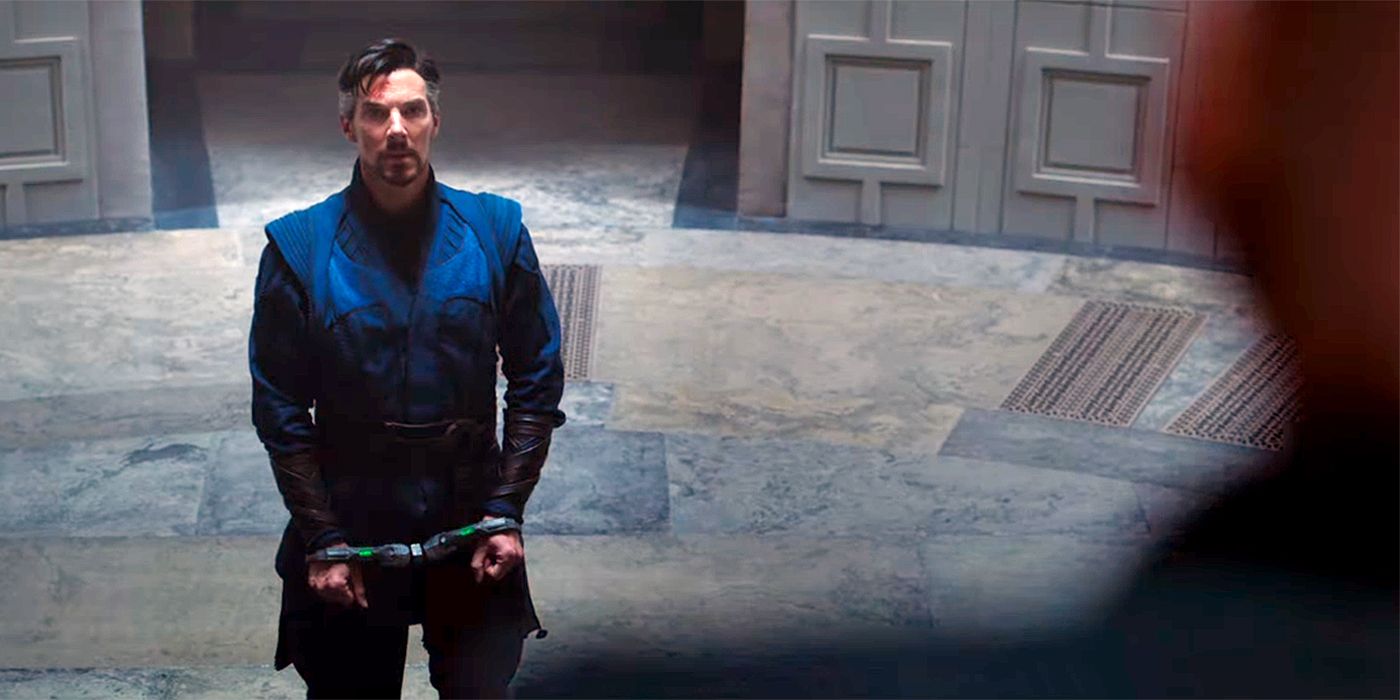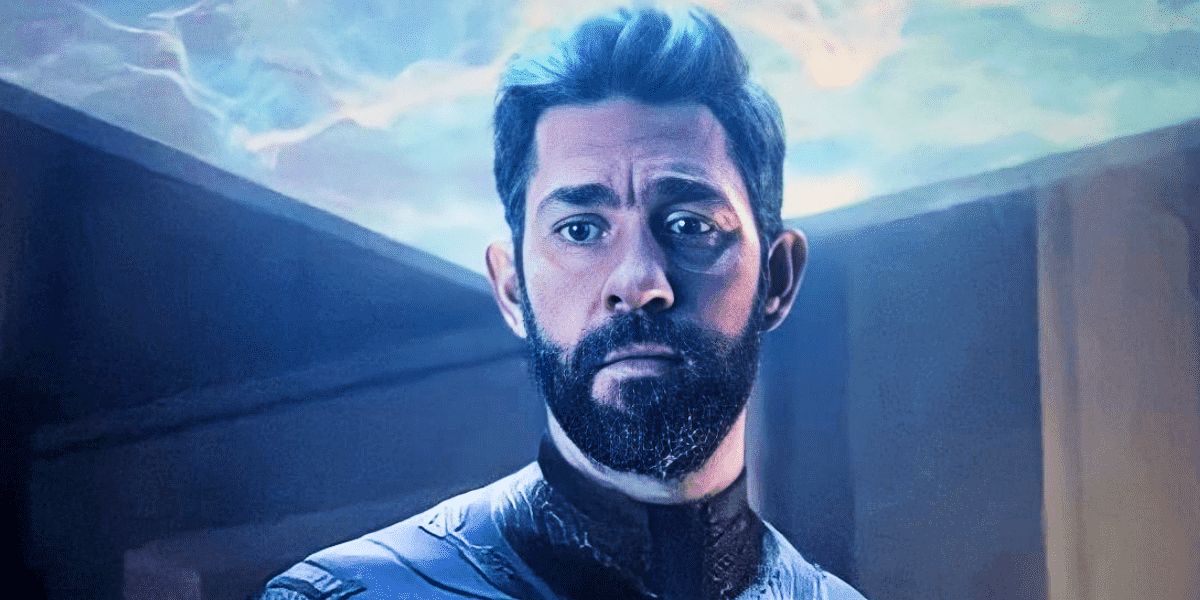The following contains major spoilers for Doctor Strange in the Multiverse of Madness, now in theaters.
After Thanos dusted half the galaxy with a single metallic snap, killing an estimated five trillion souls, Wanda Maximoff's ashes drifted into the ether while holding the wreckage of Vision in her arms. When Bruce Banner reversed the Snap with one of his own, all of that life returned in one abrupt moment all across creation. Wanda was reborn but the pain of losing the one being she loved was still fresh, since he was not alive in the strictest sense and therefore immune to this form of resurrection. She fought valiantly during the Battle of Earth and after the eventual victory her grief remained, undistracted, and so she sought closure. This led her to the S.W.O.R.D. facility where Vision's parts were being kept before she found herself on the plot of land he secured for the two of them, to build a home where they might grow old together.
In a subconscious burst of power fueled by mounting grief, Wanda ensorcelled an entire town to parrot the choreographed whims of her suppressed psyche, conjured a dutiful facsimile of Vision out of nothing and later gave birth to a pair of magic wrought twins. Once confronted with the truth of her actions, she lost them all. Multiverse of Madness is in many ways her descent into mania as a result of an inability to process her loss, infected further by the influence of the Darkhold and culminating in her willingness to kill hundreds while putting entire realities in jeopardy. Her actions were her own and she must ultimately bear the responsibility, but the Illuminati have blood on their hands that can't be ignored.
Doctor Stephen Strange of the 616 universe was detained and shuffled off to meet his Illuminati captors so he could respond to their misgivings about his presence in their universe, after he and America Chavez catapulted through dozens of dimensions while fleeing the Scarlet Witch. When he was brought before them, they explained their Doctor Strange was executed for bringing about the destruction of another universe. While dreamwalking through other realities to search for a way to beat Thanos, and using the Darkhold to do it, he inadvertently doomed an entire reality in much the same misguided way as Strange Supreme from the What If...? anthology.
Their logic in condemning Strange to death is somewhat specious, but their conclusion that every version of Strange is a potential danger to the multiverse isn't supported by anything they chose to disclose. Their suspicion of 616 Strange, based entirely on this premise, doesn't hold under scrutiny. By their own account, 838 Strange was not an evil person, nor did he act out of selfishness in his attempt to find a way to defeat Thanos. He did not consult the Darkhold to become more powerful for its own sake or to satisfy some individual impulse. His mistake was a grave one and perhaps death was an adequate retribution, but even in his moment of submission he proved to be the man worthy of his statue.
The former 838 Sorcerer Supreme acquiesced to their judgment, which was derived at hastily. Their version of Strange was atomized by Black Bolt in the shadow of Thanos' cooling corpse. There was no temporal distance from the Mad Titan's defeat, yet they decided the only justifiable resolution was the murder of their founding member. A man who potentially sacrificed a portion of his soul to try and save his universe. If Strange was truly someone worthy of such rapid summary judgment, it seems likely he would have tried to fight his way out of the situation. Presumably mired in guilt, the speed at which a decision was reached probably robbed him of a perspective where he was worthy of life, which in its own way is a mark of his valor.
Though they may have a 616 counterpart, The Illuminati of 838, presumably due to technological advances pioneered by Reed Richards, were fluent in the language of the multiverse and even had a reference system for cataloguing parallel dimensions. There is an implication in the film that most versions of Strange are blinded by their own power to see the danger they pose to the larger cosmos, or at the very least are willing to make moral choices that run counter to simple black and white moral hues. Each of the variants presented in Multiverse of Madness succumbed to some degree of objective darkness. The controversial Zombie Strange was willing to kill America, perhaps the MCU's first potential nexus being, and absorb her abilities to keep them away from a more powerful entity that had the wherewithal to control them with precision. Illuminati Strange blundered a whole shard of existence into oblivion and Cacophony Strange also caused an incursion, abused the Darkhold and was the lone survivor of his reality.
Before even approaching the atrocities committed by Strange Supreme in the name of love, it is possible that the Illuminati had a voluminous dossier on the predispositions of an infinite number of Stephen Strange doppelgängers across eternity that doomed their impression of the one from the Sacred Timeline. However, even if this is true, their knowledge of other timelines should have clearly given them pause to consider Strange's words and take them more seriously. All the versions mentioned above, though ill-advised, were behaving from a place of good intentions. None of them were liars or were revealed as seekers of power through deceitful means. The Illuminati also had access to a wealth of evidence indicating that variants come in all manner of distinction and therefore no one person can be wholly any one thing across an infinite combination of factors.
This assessment should also have held true for Wanda. Even if the Illuminati never encountered a version of her that had ascended to become the Scarlet Witch, their lack of imagination doomed them to the threat that came knocking at their interdimensional door. Having seen worlds that were so different from their own and intimately understanding the stakes for ignoring such threats, all the information they presented seemed to bolster the idea that they should have taken Strange seriously from the start. This is only amplified by the fact that the world's most powerful telepath vouched for the 616 master of the mystic arts, albeit too late in the conversation to truly add any heft. Upon confronting Wanda, after she devastated their defenses, they still didn't give the threat a passing degree of credibility which ironically led to their own humiliating demise. At least Wanda was behaving from a place of grief mutated by magical corruption. In contrast, the Illuminati's hubris exposed them as hypocrites but their inability to consider options outside their preconceptions make them as guilty, or more, than the man they themselves condemned to die.
To see the Illuminati arrogantly walk to their doom, Doctor Strange in the Multiverse of Madness is now playing in theaters.



